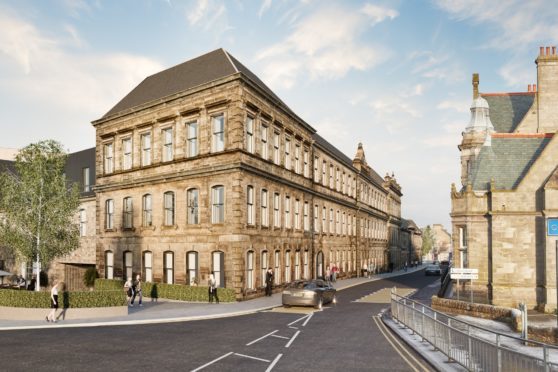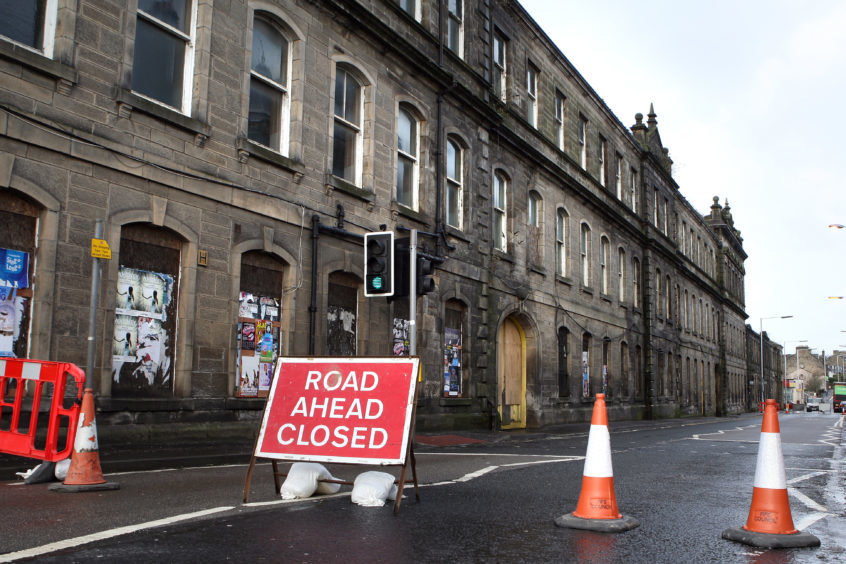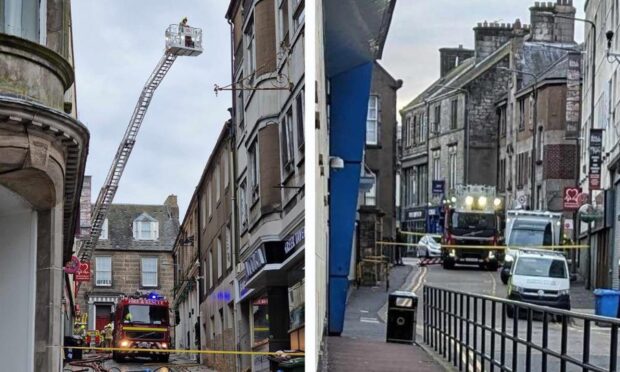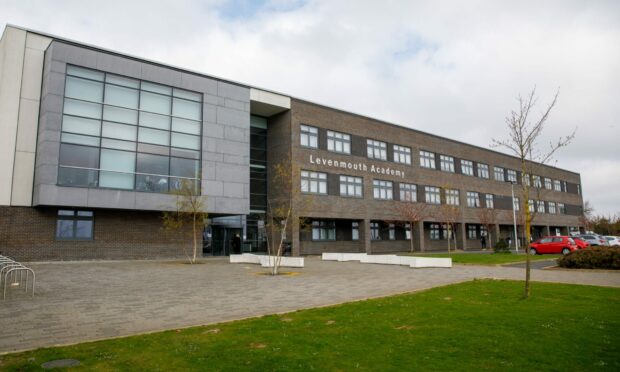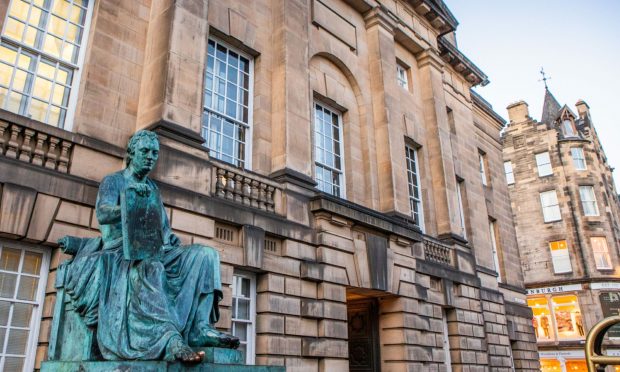Plans to safeguard the future of a crumbling A-listed Dunfermline landmark have been approved by councillors.
Edinburgh-based Byzantian Developments has been granted planning permission to transform the derelict former Duracord factory in Pilmuir Street into a complex of 157 flats and commercial space for takeaway and licensed premises.
The plans were given the go-ahead by the west planning committee, albeit with reservations from councillors Alice McGarry and Helen Law.
Mrs McGarry, the committee’s SNP convener, said: “It’s not particularly to my taste, but it’s a development in the centre of the town.”
The overhaul of the building will involve partial demolition and the creation of a seven-storey block, with a red brick finish.
Council planners said the design was “sympathetic to the surrounding historic buildings”.
The approval brings to an end years of uncertainty for the A-listed building, which was initially a linen damask factory warehouse complex dating back to the 1800s.
It was bought by Dunlop in 1947 and was used to make tyre fabric before being taken over by Duracord.
The Duracord factory closed in 2005 and the empty building became increasingly dilapidated.
In March 2016, Pilmuir Street was closed after debris was blown from the roof.
It also became a target for vandals and in 2009 fire-raisers caused around £500,000 of damage.
Plans to breathe life back into the building included a bid to make it a Fife College campus.
Town businessman Bill Fletcher, who used to own the property, said moving students into the former textiles factory would be a catalyst for regeneration.
This idea was backed by Labour councillor Helen Law, who told fellow committee members: “I welcome the proposal, albeit I will be eternally disappointed it’s not the college.”
Daniel Multon of Byzantian Developments said the flats and commercial space would regenerate Pilmuir Works and make Dunfermline a “premium” destination to live and work.
“This fantastic planning result for Dunfermline is testament to the constructive relationship developed between Fife Council and our project team,” he said.
Byzantian has previously been involved in successful regeneration projects, notably Station Court in Kirkcaldy, which faced demolition but is now luxury flats, and the Barony in Dysart.
Planning permission was granted with conditions, including a £24,615 contribution towards Roman Catholic primary school provision.
Byzantian will be retaining the existing chimney, which has been checked for structural problems.
